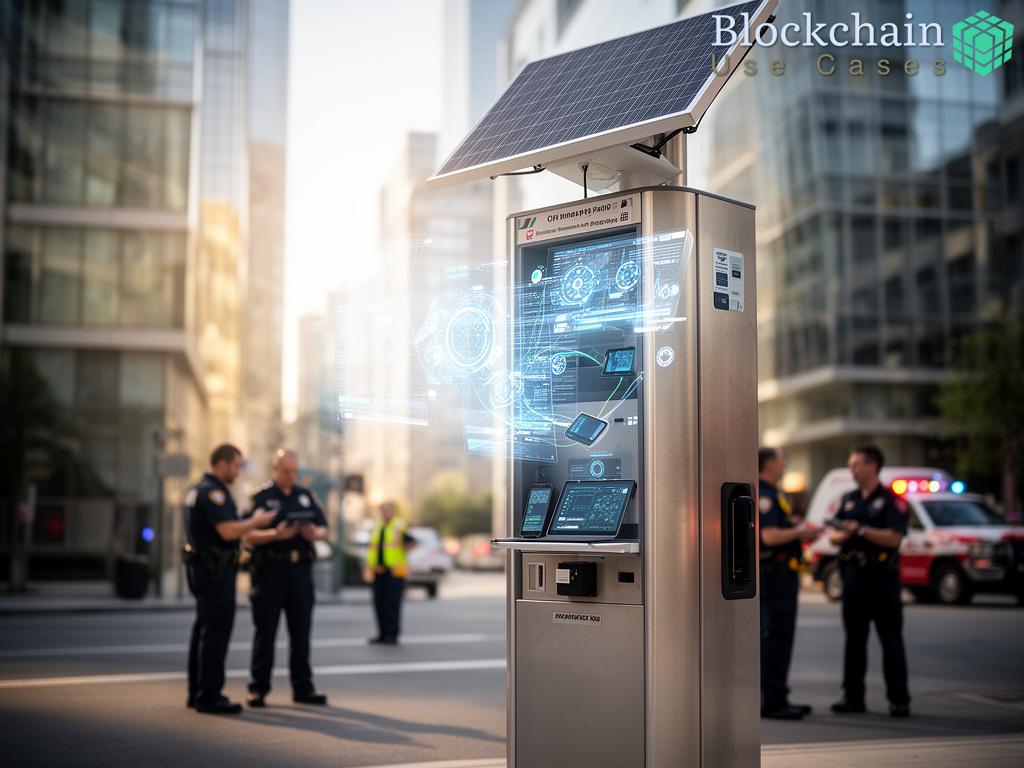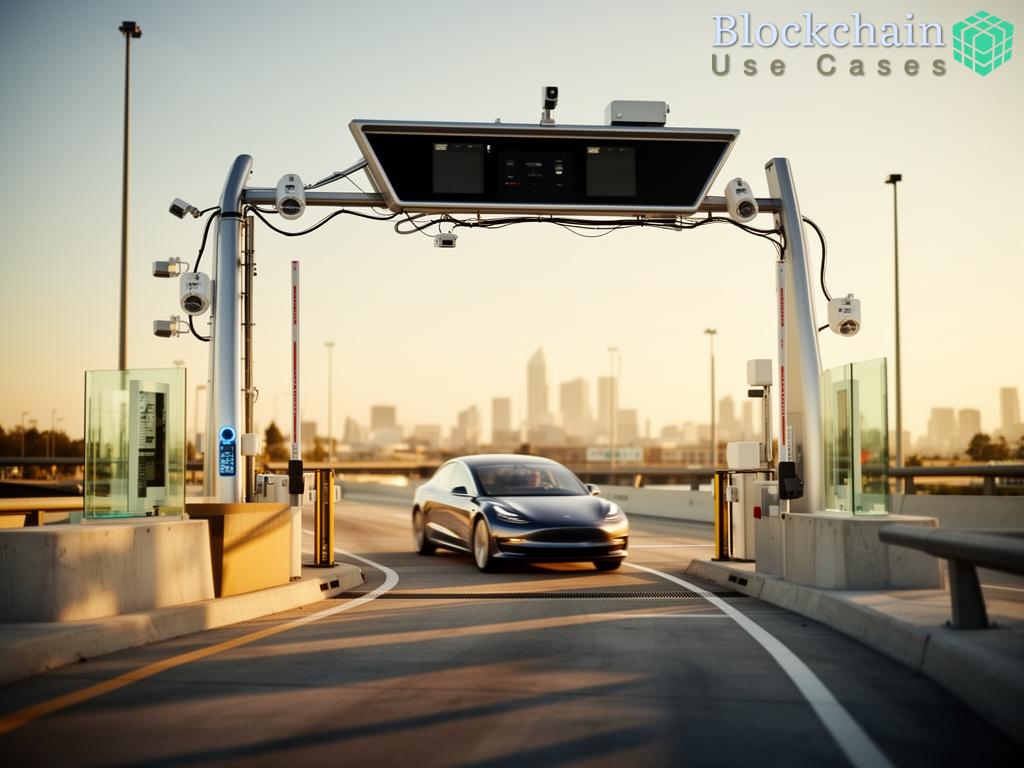Enhancing Data Security in HR Management
Revolutionizing Data Integrity with Blockchain
The advent of blockchain technology has ushered in a new era for data security in Human Resources (HR) management. Traditional HR systems often grapple with data breaches, unauthorized access, and inefficient verification processes. By leveraging the decentralized and immutable nature of blockchain, government HR departments can significantly enhance the integrity and security of sensitive employee data. This technology not only offers a robust framework for protecting personal information but also ensures that recruitment processes are transparent and tamper-proof.
Decentralization: A Game Changer for Data Protection
One of the most significant advantages of blockchain is its decentralized architecture. Unlike conventional databases that store data in a single location, blockchain distributes data across numerous nodes, making it nearly impossible for unauthorized entities to access or alter sensitive information. This is particularly crucial in HR management, where employee records, payroll data, and recruitment information are often targets for cyberattacks.
Moreover, the use of smart contracts within blockchain can automate and secure various HR processes, from onboarding to performance evaluations. By ensuring that only authorized parties can interact with the data, organizations can mitigate risks associated with data theft and fraud.
Key Advantages of Blockchain in HR Data Security
To better understand the transformative impact of blockchain on HR data security, here’s a concise overview of its key advantages:
- Enhanced Data Privacy: Blockchain encrypts data, allowing only authorized individuals access while keeping sensitive information secure.
- Immutable Records: Once data is entered into the blockchain, it cannot be altered, providing a reliable audit trail.
- Reduced Fraud Risk: The transparency of blockchain helps in verifying identities and credentials, reducing the chances of fraudulent activities.
- Streamlined Processes: Automation through smart contracts can expedite HR processes, leading to reduced administrative burdens.
- Cost Efficiency: By minimizing the risks associated with data breaches, organizations can save on potential legal fees and reputational damages.
A Glimpse into the Future of HR Management
As government HR departments begin to embrace blockchain technology, the future of HR management looks promising. Enhanced data security not only protects sensitive information but also builds trust among employees and stakeholders. By adopting this innovative approach, HR can move towards a more secure, efficient, and transparent management system that aligns with the digital age.
Automating Recruitment Processes with Smart Contracts

The integration of smart contracts within blockchain technology is proving to be a revolutionary approach in automating recruitment processes in government HR departments. This innovative mechanism not only streamlines operations but also enhances transparency and accountability. By allowing predefined agreements to automatically execute once conditions are met, smart contracts eliminate the need for intermediaries, thereby reducing the time and cost associated with traditional recruitment methods.
Imagine a scenario where candidates submit their applications and the recruitment criteria are coded into a smart contract. As applications are received, the contract automatically evaluates them against the established criteria. This not only accelerates the selection process but also ensures that every candidate is judged based on the same objective parameters, thus mitigating biases that can often cloud human judgment. The role of HR professionals shifts from administrative tasks to more strategic functions, as they can focus on engaging with candidates who meet the requirements rather than sifting through mountains of paperwork.
Transformative Advantages of Smart Contracts
With the implementation of smart contracts, the recruitment landscape undergoes a significant transformation. Key benefits include enhanced efficiency, reduced administrative burdens, and improved candidate experience. For instance, as soon as a candidate’s application meets the criteria, they can receive automated notifications regarding the next steps in the hiring process. This immediate feedback loop not only keeps candidates informed but also enhances their overall experience, creating a positive impression of the organization.
Moreover, the transparency offered by smart contracts fosters trust among candidates. They can verify the criteria used for their evaluation and understand how decisions are made, effectively removing any ambiguity from the recruitment process. This is particularly important in government HR departments, which are often scrutinized for fairness and equity in hiring practices. By utilizing smart contracts, these departments can demonstrate their commitment to transparent and equitable recruitment processes.
Building a Future-Ready Recruitment Framework
As government HR departments look towards the future, the adoption of smart contracts represents a pivotal step in modernizing recruitment frameworks. The shift from manual, often error-prone processes to automated systems not only enhances operational efficiency but also positions organizations to better respond to the evolving expectations of a digital-savvy workforce. Furthermore, the ability to collect and analyze data from smart contracts can provide invaluable insights into recruitment trends, enabling HR leaders to make informed decisions and continuously improve their strategies.
In conclusion, the automation of recruitment processes through smart contracts encapsulates the essence of blockchain’s impact on government HR management. By embracing this technology, organizations can not only streamline their operations but also enhance trust and satisfaction among candidates, ultimately leading to a more effective and efficient recruitment process.
Improving Transparency in Candidate Evaluation

The implementation of blockchain technology in government HR departments is fundamentally transforming the way candidate evaluations are conducted. One of the most significant benefits is the enhancement of transparency, which directly addresses long-standing concerns about bias and inequity in recruitment processes. As organizations strive for fairness in hiring, the ability to provide clear, auditable trails of candidate evaluations becomes essential.
Blockchain’s inherent characteristics, such as its decentralized ledger and immutability, ensure that all evaluation criteria and outcomes are documented in a way that is both secure and accessible. This means that once a candidate’s evaluation is logged onto the blockchain, it is permanently recorded and cannot be altered or deleted. Consequently, every stakeholder—from HR professionals to candidates themselves—can view the criteria and results, fostering an environment of trust and accountability.
Eliminating Ambiguity and Enhancing Trust
In traditional recruitment processes, candidates often face uncertainty regarding how their applications are assessed. Blockchain mitigates this ambiguity by allowing candidates to access the evaluation criteria embedded within the smart contracts used in the recruitment process. This transparency enables candidates to understand how their qualifications align with the job requirements and how decisions are made, which is particularly crucial in government sectors where scrutiny is high.
Moreover, the ability to track and verify the selection process in real-time ensures that all candidates are evaluated against the same set of standards. This not only reduces the potential for bias but also promotes a culture of fairness. Candidates can be confident that their evaluations are based on objective criteria rather than subjective opinions, thereby enhancing their overall experience with the hiring organization.
Data-Driven Insights for Continuous Improvement
The integration of blockchain technology also opens the door to robust data analytics. By maintaining a comprehensive record of evaluations, HR departments can analyze trends in candidate performance and recruitment outcomes over time. This data-driven approach allows organizations to identify patterns, such as the effectiveness of specific evaluation criteria or the success rates of various recruitment methods. Leveraging these insights can lead to continuous improvement in hiring practices and help organizations adapt to the evolving needs of the workforce.
Furthermore, the ability to generate reports based on immutable data can assist organizations in complying with regulatory standards and demonstrating their commitment to equitable hiring practices. As such, blockchain not only enhances transparency in candidate evaluation but also serves as a strategic tool for ongoing development within government HR functions.
Streamlining Employee Verification and Background Checks
The integration of blockchain technology into government HR processes is reshaping the landscape of employee verification and background checks. Traditional methods often involve prolonged timelines and a labyrinth of paperwork, creating inefficiencies that can hinder recruitment efforts. By harnessing the capabilities of blockchain, government HR departments can eliminate these inefficiencies, paving the way for a more streamlined, transparent, and secure verification process.
Decentralized Verification Mechanism: One of the most significant advantages of blockchain is its ability to create a decentralized verification system. Instead of relying on third-party agencies to validate an applicant’s employment history or educational credentials, organizations can access immutable records stored on the blockchain. This not only expedites the verification process but also minimizes the risk of fraudulent claims. Each entry is verified by multiple nodes on the network, ensuring that the information is not only accurate but also tamper-proof.
Speeding Up Background Checks: The conventional background check process can take weeks, often leaving candidates in limbo and organizations struggling with prolonged vacancies. However, blockchain enables real-time access to verified data. When a candidate’s information is stored on the blockchain, HR professionals can perform checks almost instantaneously. This rapid access to verified information enhances the overall candidate experience, as applicants receive timely updates regarding their status in the hiring process.
Enhancing Trust and Reducing Costs: The transparency offered by blockchain technology is a game changer for building trust between candidates and HR departments. Candidates can be assured that their personal information is secure and that their background checks are conducted fairly. Moreover, the reduction in reliance on external verification agencies leads to significant cost savings for government organizations. By minimizing administrative overhead and the potential for errors, blockchain technology not only streamlines processes but also contributes to a more efficient allocation of resources.
As government HR departments continue to explore the transformative potential of blockchain, the focus on employee verification and background checks is just one of many areas poised for improvement. The shift towards a more efficient, secure, and transparent verification process will not only enhance recruitment efforts but also foster a culture of trust and accountability within organizations, ultimately benefiting the entire workforce.
Facilitating Decentralized Talent Pools
The evolution of blockchain technology is not only reshaping data security and recruitment processes in government HR departments but is also paving the way for the establishment of decentralized talent pools. This innovative approach allows organizations to tap into a broader range of candidates while enhancing transparency and efficiency in the hiring process. By utilizing blockchain, government HR can create an environment where talent is not confined to geographic limitations, promoting inclusivity and diversity in the workforce.
Unlocking Global Access to Talent
One of the fundamental benefits of decentralized talent pools is the ability to connect with candidates from all over the world. Traditional recruitment methods often restrict talent acquisition to local or regional candidates, limiting the diversity of skills and perspectives within an organization. By leveraging blockchain technology, government HR departments can access a global network of professionals whose credentials and experiences are securely verified on the blockchain. This *global access not only broadens the talent search but also allows organizations to find niche skills that may be scarce in local job markets.*
Building a Trustworthy Network
With the transparency inherent in blockchain technology, candidates can share their credentials and work history without fear of misrepresentation. Each entry in the blockchain is immutable and verified by multiple nodes, ensuring that the information is accurate and trustworthy. This creates a more reliable environment for both candidates and employers, as hiring decisions are based on verified qualifications rather than subjective opinions. In addition, the decentralized nature of this system eliminates the need for intermediaries, reducing delays and administrative burdens associated with traditional recruitment processes.
Enhancing Collaboration Among HR Professionals
The decentralized talent pool model fosters greater collaboration among government HR professionals. By sharing access to a common database of verified candidates, organizations can work together to fill positions that require specialized skills. This collaborative approach not only improves the efficiency of the recruitment process but also promotes a culture of knowledge-sharing among HR departments. As a result, government organizations can adapt more swiftly to changing workforce needs, ensuring that they remain competitive and responsive to the demands of a dynamic labor market.
As blockchain technology continues to gain traction, the concept of decentralized talent pools will likely evolve, offering new opportunities for government HR departments to streamline their recruitment processes. By embracing this innovative approach, organizations can not only enhance their talent acquisition strategies but also build a more diverse and inclusive workforce that reflects the communities they serve.





